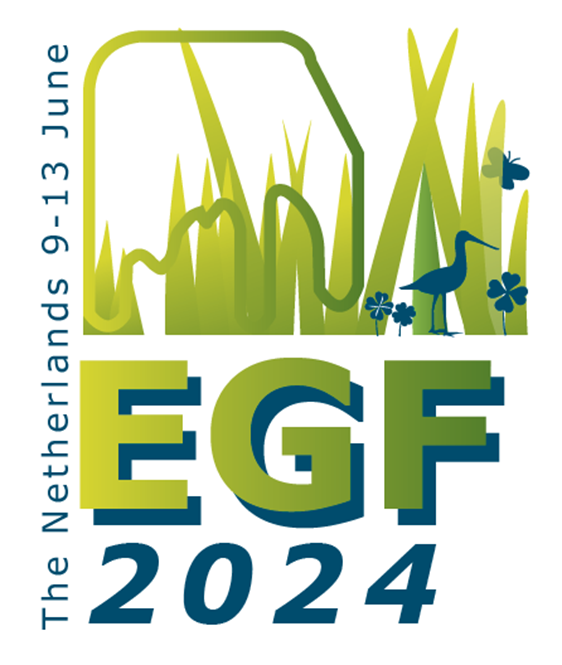From June 9–13, the 30th General Meeting of the European Grassland Federation (EGF), hosted by the Dutch-Flemish Society for Grassland and Fodder Crops (NVWV), was held in the Harmonie in Leeuwarden, the Netherlands. The General Meeting attracted 325 participants from 32 countries and hosted an additional 75 participants in side-events.
The event was opened by Dr. Agnes van den Pol-van Dasselaar, President of EGF and host of the event. She introduced the main theme of the General Meeting: “Why grasslands?”. The General Meeting revolved around the question whether grasslands are important, and if so, why?
The scientific program was divided into five plenary sessions:
- WHAT: What is the role of grasslands in net food security?
- HOW: How do we balance ecosystem services?
- WHICH: Which methods can be used to monitor, evaluate and steer grassland management?
- WHERE: Where should we focus on which ecosystem services?
- WHOM: For whom are grasslands important?
On the general EGF website (http://www.europeangrassland.org/), you can find the proceedings “Grassland Science in Europe – volume 29” with a total of 916 pages of paper contributions from EGF2024.
We gratefully remember lively debates, insightful presentations, interesting mid-conference tours and social activities, and above all, the fruitful exchanges of ideas among researchers, practitioners, and stakeholders from across Europe and beyond. Together, we explored the multifaceted roles of grasslands and discussed innovative solutions to the challenges they face.
The main organisers of the EGF2024 General Meeting were Dr. Agnes van den Pol-van Dasselaar – President (Aeres University of Applied Sciences), Dr. Cindy Klootwijk – Chair Scientific Committee (Wageningen University & Research) and Dr. Wiepk Voskamp-Harkema – Chair Organising Committee (Van Hall Larenstein University of Applied Sciences).






